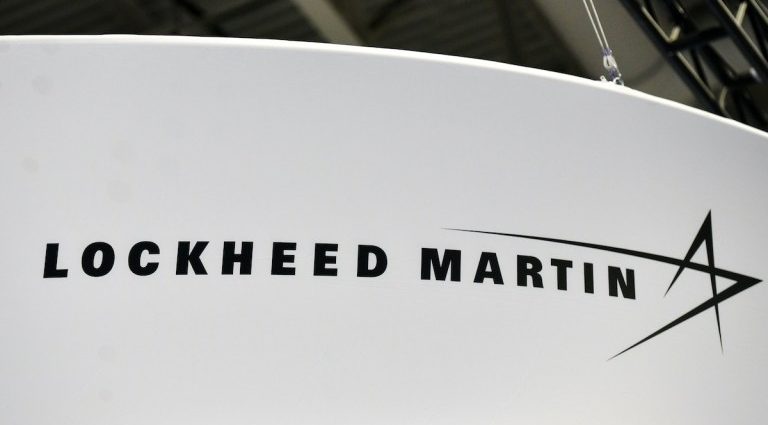Beijing’s latest sanctions against Lockheed Martin Corp and Raytheon Missiles & Defense may affect some of the companies’ joint ventures in China, commentators said.
China’s Ministry of Commerce on Thursday (February 16) said it had added the two US defense contractors to its “unreliable entities list” as they sold arms to Taiwan. It said the measures were also aimed at retaliating against the US for its moves to take down a Chinese balloon and sanction six Chinese firms earlier this month.
It was the fourth time the Chinese government sanctioned the two firms, following previous moves in 2019, 2020 and 2022. China said the two companies had to pay fines equivalent to twice the amount of their arms sales to Taiwan in recent years within 15 days.
Chinese commentators said the two US defense contractors would be hit by the sanctions as they had many joint venture projects across the aviation, energy, satellite and electronic sectors in China. But some said China would also suffer if these projects were suspended.
In February last year, Beijing said it decided to sanction Lockheed Martin and Raytheon Technologies over Taiwan arms sale issues. It did not announce more details at the time. Chinese media speculated at the time that the two firms could be banned from buying China’s rare earths.
According to the latest round of sanctions, the two firms will be prohibited from any export and import activities and new investments in China. Their senior executives will be barred from entering China while those who are now in the country will be unable to renew work and residence permits.

China said the two companies must pay fines within 15 days or they would be fined more.
Last September, Raytheon Missiles & Defense was awarded a US$412 million contract to upgrade Taiwan’s military radar. Lockheed Martin won contracts to supply Taiwan’s military with radar, helicopters and air traffic control equipment.
“In recent years, Lockheed Martin and Raytheon Missile & Defense have repeatedly sold arms to Taiwan in disregard of China’s strong opposition,” the Chinese commerce ministry said in a statement on Friday. “They have seriously threatened China’s national security and undermined China’s national sovereignty and territorial integrity.”
The department added that China’s sanctions would only target a few foreign entities while their scope would be limited. It said there was no need for foreign investors to be over-worried.
Some commentators said as Raytheon Missile and Defense was put on China’s entity list but its parent Raytheon Technologies and sister companies were not, the other units should not be affected. But others are worried that Raytheon Technologies will be hit one day.
“Although Raytheon Technologies said it did not have any businesses in China, it merged with the United Technologies Corporation (UTC) a few years ago, which has many Chinese projects,” a columnist wrote in an article published by China’s Defense Times on Friday.
“From China’s perspective, none of the UTC products are non-replaceable,” said the columnist.
He said he believed the two firms would not ignore the order for the fines, which might amount to 99 billion yuan (US$14.4 billion), due to their robust involvement in China’s markets and strong need to buy Chinese rare earths.
Back in 2011, Pratt & Whitney, a subsidiary of Raytheon Technologies, and China Aviation Engine Holdings Corp set up a joint venture in Zhuzhou to provide maintenance, repair and overhaul for civil aircraft engines.
In 2016, Pratt & Whitney delivered its first PurePower engines to China Southern Airlines.
Lockheed also has a lot of businesses in China but they are not essential to the country, said some Chinese writers.
In 2006, Savi Technology, a wholly-owned unit of Lockheed, was allowed to sell its 433MHz radio frequency identification products in China.
In 2013, Lockheed and the Beijing-based Reignwood Group, established by Chinese-Thai billionaire Chanchai Ruayrungruang (aka Yan Bin), signed an agreement to develop an ocean thermal energy conversion (OTEC) pilot power plant off the coast of Hainan province.

In 2014, Lockheed and State Nuclear Power Technology Co signed an agreement to build a nuclear reactor coolant system. In addition, Lockheed’s Straightline Aviation Ltd tailor-made a hybrid airship for China’s markets.
Currently, Lockheed’s Sikorsky Aircraft still has a 49% stake in Shanghai Xikesiji Feiji Company, a helicopter parts supplier. When Sikorsky was still a unit of UTC, it sold 24 S-70 Black Hawk helicopters to China in 1984. They are still in service.
China’s Harbin Z-20 is said to be a replica of the S-70.
Read: China fires back bigger with US spy balloon claim
Follow Jeff Pao on Twitter at @jeffpao3

